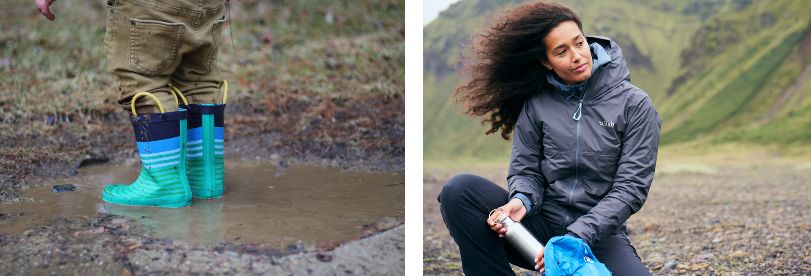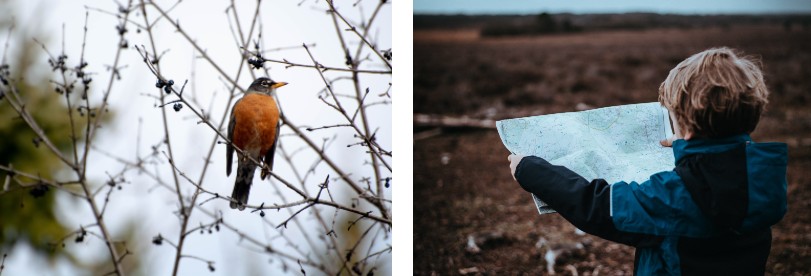Recently we’ve all seen how spending time outdoors is so valuable for easing cabin fever, promoting positive mental health and of course, making new memories. Although the view from your window may look pretty uninspiring, we’ve put together six top tips to encourage family adventure, regardless of cold temperatures and wet weather!
1. Wear your waterproofs
As the Scouts say… Be prepared! It may sound simple, but layering up with a reliable waterproof jacket can really make or break your time outside. There’s no better feeling than staying dry and warm on a winter walk. Hooded waterproof jackets are a staple item in any explorer’s kit, so pick out one that’s suitable for your adventure. For longer walks, it’s always worth wearing good quality walking boots, and packing a pair of waterproof trousers for added downpour protection.
2. Stay insulated
Equally as important as a waterproof jacket, insulated jackets offer high powered warmth and don’t weigh much – great for a bulk free hike! Insulated jackets are a truly versatile piece of kit, with the ability to wear as a top layer on a frosty day, or as part of a layering system under stormy clouds. Perfect for showery weather, jackets with hydrophobic down (a fancy name for water resistant insulation) still perform when wet, great for unpredictable rain!

3. Visit local woodland
Here in the UK, we’re lucky to have fantastic woodland with unique wildlife and spectacular sights! Discovering your local forests is an exciting adventure for junior explorers. Can you spot fairies? Geocaches? Or even make your own scavenger hunt! Trees will add a welcome layer of cover should the heavens open, so no need to cut your walk short! Take a look at our guide on 15 Forests and Woods to Visit in the UK for more ideas.
4. Learn about local wildlife
Engage the kids and spot some wildlife around your home town. Birdwatching is a great hobby to introduce to the little ones, you can also find some shelter in birdwatching huts so it’s unbeatable for rainy days. You can even birdwatch from home, check out our guide on which birds to look out for in your garden. Ordnance Survey also have some great guides on where to birdwatch around the UK (when holistays can resume!).

5. Navigate the elements
Whilst at present we can only dream of exciting adventures in new locations, we can take the opportunity to brush up on our navigation skills and discover new places nearby.
Pioneering new routes through the elements require the equipment to match your pursuit. Although using a map may become difficult in sudden downpours, there are some measures you can take to make navigating through the rain a little easier. Opt for a map case, they can be easily be worn around your neck (so no chance of losing them in the wind), and they’ll act as a waterproof barrier against bad weather. You can also choose an ‘Active Map’ from Ordnance Survey, they’ll have a weather resistant layer built into them, great for autumn hikes.
6. Pay attention to aftercare
After extended use, you’ll notice your waterproof jackets, trousers and boots beginning to ‘wet out’. This is when rain begins to soak into your kit, and water doesn’t ‘bead’ off. Refresh your gear’s waterproofing by washing them in aftercare products from Nikwax and Grangers. This should be done regularly to prolong the lifespan of your jacket, trousers or boots and keep them going for years to come. You can find more information on how to wash a waterproof jacket here.
If you’re feeling a new-found motivation to make the most of your local outdoor areas this autumn, check out our GO Holistay hub for more ideas and inspiration.
